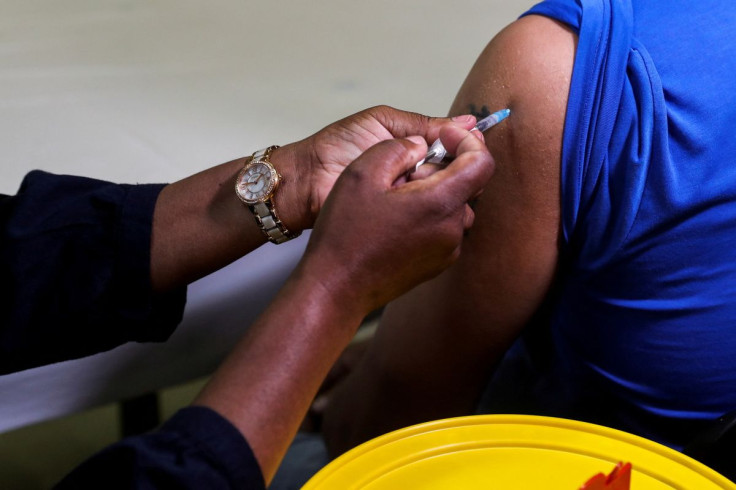New COVID-19 Omicron Variants Could Dodge Antibodies: Everything You Need To Know
KEY POINTS
- Unvaccinated breakthrough cases saw a decrease in antibody production when exposed to BA.4 and BA.5
- The sub-variants may trigger a new COVID-19 infection wave
- Any new wave was "not likely" to cause more severe disease, according to researchers
Two new COVID-19 omicron subvariants, which were found to be able to dodge antibodies from earlier infections and vaccination, could trigger a new infection wave, according to a South African laboratory study.
Blood samples taken from 24 unvaccinated individuals who had been infected with the omicron sub-lineage, BA.1, saw a 7.6- and 7.5-fold decrease in neutralizing antibody production when tested against the strain's new BA.4 and BA.5 sub-lineages, respectively, according to a study led by the Africa Health Research Institute (AHRI).
Meanwhile, samples from 15 previously infected participants who received either the Pfizer or Johnson & Johnson vaccine saw a 3.2- and 2.6-fold decrease in antibody production when exposed to BA.4 and BA.5, respectively, a pre-print of the multi-institute study, which has yet to be peer-reviewed, showed.
"Results are more concerning than the fold-drop indicates, because BA.1 was not very immunogenic - it did not lead to much neutralization capacity, so what was left after BA.4/5 was very low," Alex Sigal, of AHRI, explained.
The two sub-lineages, which were both added to the World Health Organization's monitoring list a month ago, may result in a new COVID-19 infection wave, according to researchers.
"My guess based on this: BA.4/BA.5 escape, while not as dramatic as Omicron escape from vaccine or Delta immunity, is enough to cause trouble and lead to an infection wave," Sigal said in a statement.
However, the AHRI faculty member noted that any new wave was "not likely to cause much more severe disease than the previous wave, especially in vaccinated."
The BA.4 and BA.5 subvariants may be responsible for an apparent new wave of COVID-19 infections in South Africa, scientists and health officials said last week.
Both are currently classified by the U.S. Centers for Disease Control and Prevention (CDC) as a "variant of concern."
Variants under this label showed "an increase in transmissibility," "more severe disease" and "significant reduction in neutralization by antibodies generated during previous infection or vaccination," among others, according to the CDC.
BA.4 sequences have been identified in samples taken from multiple U.S. states, while five cases of BA.5 have been sequenced in the country as of Friday.
The U.S. has reported a total of 81,173,065 COVID-19 cases and 991,030 virus-related deaths, according to data provided by the CDC.

© Copyright IBTimes 2024. All rights reserved.





















